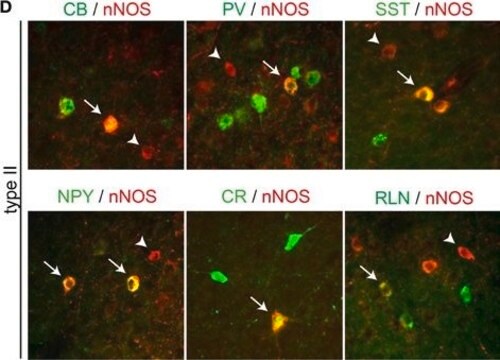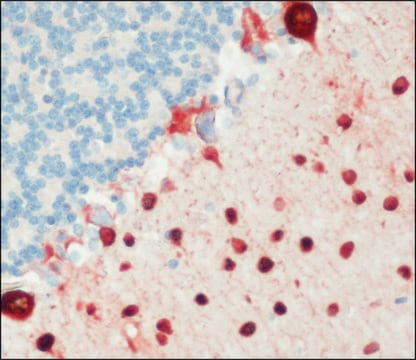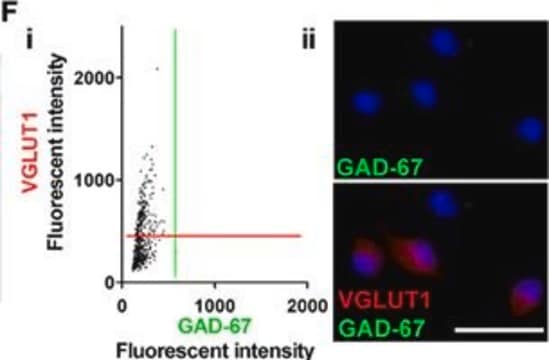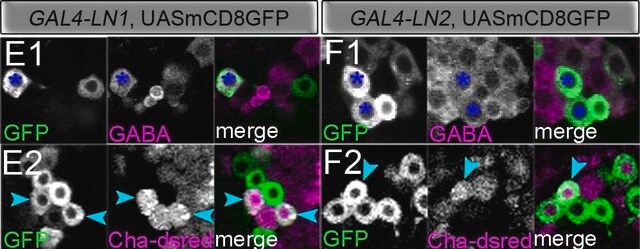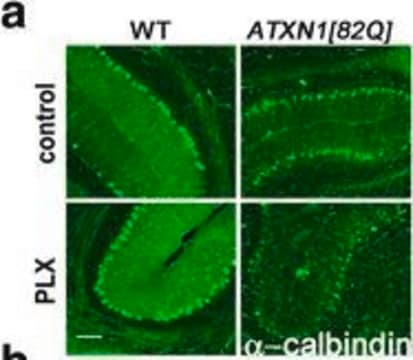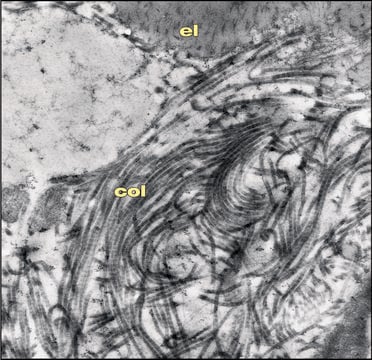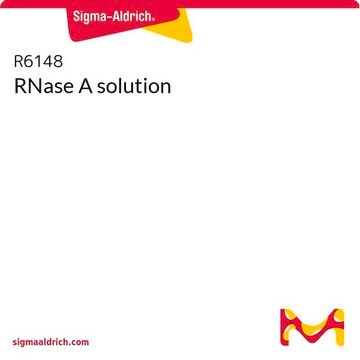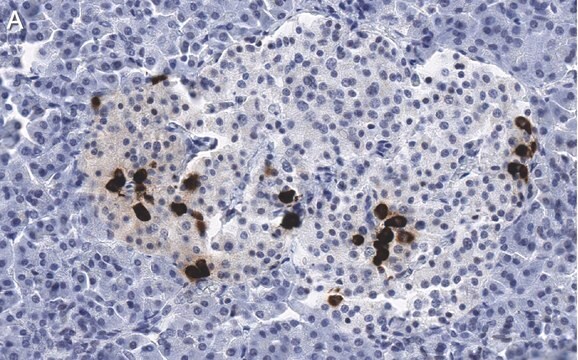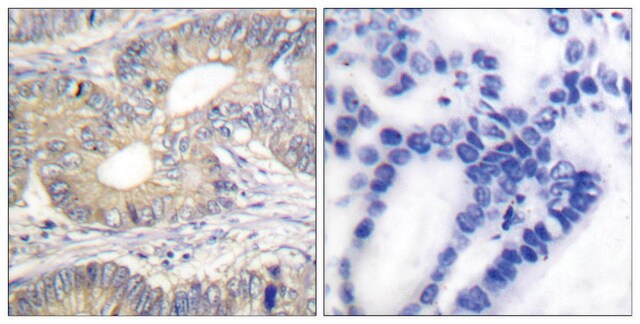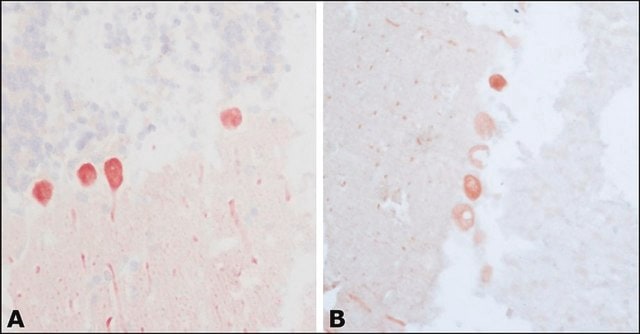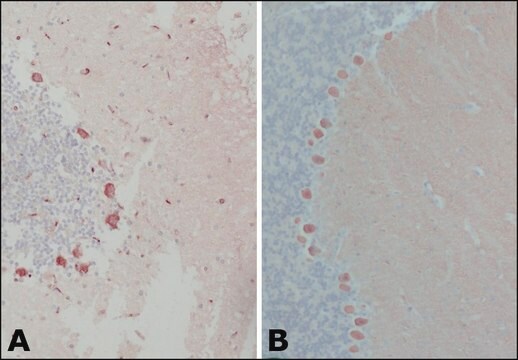P3088
Anti-Parvalbumin Antibody
mouse monoclonal, PARV-19
Synonym(s):
Parvalbumin Antibody, Parvalbumin Antibody - Monoclonal Anti-Parvalbumin antibody produced in mouse
About This Item
Recommended Products
product name
Monoclonal Anti-Parvalbumin antibody produced in mouse, clone PARV-19, ascites fluid
biological source
mouse
Quality Level
conjugate
unconjugated
antibody form
ascites fluid
antibody product type
primary antibodies
clone
PARV-19, monoclonal
mol wt
antigen 12 kDa
contains
15 mM sodium azide
species reactivity
fish, frog, rabbit, canine, feline, bovine, pig, human, goat, rat
technique(s)
immunohistochemistry: suitable
indirect ELISA: suitable
western blot: suitable (10-20K titer using Mouse skeletal muscle extract expressing Parvalbumin protein)
isotype
IgG1
UniProt accession no.
shipped in
dry ice
storage temp.
−20°C
target post-translational modification
unmodified
Gene Information
human ... PVALB(5816)
rat ... Pvalb(25269)
General description
Monoclonal Anti-Parvalbumin (mouse IgG1 isotype) is derived from the PARV-19 hybridoma produced by the fusion of mouse myeloma cells and splenocytes from an immunized mouse. Parvalbumin is a calcium-binding protein.
Specificity
Immunogen
Application
Biochem/physiol Actions
PVALB (parvalbumin) expression serves as marker for differentiating tumors as benign and malignant, in relation with thyroid lesions. Decreased expression of parvalbumin positive interneurons in rat model is associated with schizophrenia, and is known to disturb neuronal activity.
Physical form
Storage and Stability
For extended storage freeze in working aliquots. Repeated freezing and thawing is not recommended. Storage in "frost-free" freezers is not recommended. If slight turbidity occurs upon prolonged storage, clarify the solution by centrifugation before use.
Disclaimer
Not finding the right product?
Try our Product Selector Tool.
recommended
Storage Class Code
10 - Combustible liquids
Flash Point(F)
Not applicable
Flash Point(C)
Not applicable
Certificates of Analysis (COA)
Search for Certificates of Analysis (COA) by entering the products Lot/Batch Number. Lot and Batch Numbers can be found on a product’s label following the words ‘Lot’ or ‘Batch’.
Already Own This Product?
Find documentation for the products that you have recently purchased in the Document Library.
Customers Also Viewed
Our team of scientists has experience in all areas of research including Life Science, Material Science, Chemical Synthesis, Chromatography, Analytical and many others.
Contact Technical Service